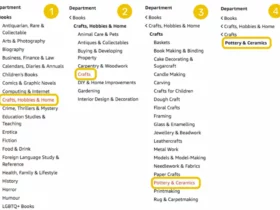In the digital arena, the lifeblood of most companies today is their internet connection. A robust, efficient internet package isn’t just a convenience; it’s a strategic asset that can significantly influence your business’s day-to-day operations, customer service, and overall bottom line.
Navigating the myriad of internet service options can be overwhelming. From the different packages, providers, and technical jargon involved, choosing the right solution for your business may seem like a daunting task.
This comprehensive guide will walk you through the crucial steps to ensure that your business internet package meshes seamlessly with your operational requirements, empowering your enterprise with reliable, high-performing connectivity essential for growth and success.
Assessing Your Business Needs
Understanding your internet requirements is the foundational step in selecting a business internet package that aligns with your goals. Begin by honestly answering the following questions:
Identifying Internet Needs Based on Business Size and Type
Start by assessing the essential operations that rely on the Internet. Are you a small retail business that needs to process online orders, or a large corporate entity running complex cloud-based applications? Business size often predicates the scale of internet usage, so businesses should tailor their packages accordingly to ensure they aren’t paying for under-utilized features or, conversely, limiting their capabilities.
Operational Requirements
Consider the typical day-to-day functions that are internet-dependent, such as email communications, video conferencing, data transfers, or running a customer relationship management system. Understanding these workflow needs helps you to narrow down your must-have features.
Peak Usage Times and User Density
Take into account the peak hours of internet activity, such as during heavy workloads or seasonal sales. Additionally, the number of users simultaneously accessing the internet is a crucial factor in determining your bandwidth requirements.
Bandwidth Considerations
Bandwidth is the measurement of how much data can be transferred over the internet at one time. Adequate bandwidth is non-negotiable for smooth business operations, customer experience, and employee productivity. Here’s how to evaluate it:
Determining Necessary Bandwidth
Calculate your bandwidth needs by assessing the total amount of data your business expects to use at peak times. It’s essential to overestimate slightly to accommodate unexpected spikes in usage and ensure consistency in performance.
Prioritizing High-Traffic Operations
Certain operations will be more bandwidth-sensitive than others. Designating priority to vital functions will help in the event of bandwidth constraints, ensuring critical processes are not impacted by less important, but potentially bandwidth-heavy, activities.
Upstream and Downstream Needs
Understand that bandwidth is bidirectional, with streams for both upstream and downstream data. While businesses often focus on download speeds, the ability to upload data is equally crucial, especially for activities such as video conferencing and cloud backups.
Reliability and Uptime
Businesses cannot afford frequent or prolonged internet outages. Consider the following when evaluating reliability:
Provider’s Track Record
Research the reputation of prospective service providers. Look for reviews and ratings, and check if their service has been consistently reliable for other businesses in your industry.
Service Level Agreements (SLAs)
Ensure the provider offers SLAs quantifying their commitment to uptime. These agreements are critical in holding the provider accountable for service disruptions and often include compensatory measures for downtime.
Redundancies and Fail-Safes
Ask potential providers about their infrastructure and what they do to ensure service continuity. Redundancies, such as multiple data connections and backup power, should be part of their standard operational practices.
Scalability and Growth
Your business is not static. Your internet package should be designed to grow with your business and the demands placed upon it. To ensure scalability:
Upgradable Packages
Select an option that allows for easy upgrades without significant changes to your infrastructure. Service providers often have tiered packages that can accommodate expanding needs.
Forecasting Future Demands
Look ahead to your company’s projected growth and technological advancements. An insightful provider will work with you to predict future demands and craft a package that can evolve alongside your enterprise.
Support for Remote Work and Mobility
Consider how trends like remote work might increase your connectivity needs in the future. Ensure that any internet package you choose can support a mobile workforce and continued operations from various locations.
Security and Data Protection
The business internet of today is the gateway to your company’s sensitive information. Address these security aspects:
Wi-Fi and Cyber Threats
The rise of wireless connectivity has brought about new vulnerabilities. Ensure your package includes robust Wi-Fi security, such as encryption and regular updates to protect against cyber threats and unauthorized access.
Data Encryption and Privacy
Businesses dealing with customer data need an internet package with robust data encryption to ensure privacy and compliance with data protection regulations.
Content Filtering and Control
If your business requires restricting access to certain websites or content, look for customizable filtering options that allow you to control what your employees can access during work hours.
Cost and Value
Balancing the costs involved with internet packages can be a challenge. Here’s how to ensure you’re getting the best value:
Total Cost of Ownership
Look beyond the initial setup and monthly fees. Consider the long-term expenses and the value you’re getting for your investment.
Hidden Fees and Add-Ons
Examine the contract details carefully to identify any potential hidden costs, such as installation fees, equipment rental charges, or penalties for early termination.
Bundle Offerings
Providers often offer package deals that combine the internet with other services like phone lines or TV. Evaluate these bundle offerings to see if they provide better value than standalone internet services.
Choosing the Right Provider
The success of this process ultimately hinges on the provider you choose. Here’s how to vet potential candidates:
Research and Comparison
Spare no diligence in researching multiple providers. Make side-by-side comparisons based on the critical factors discussed in the preceding sections. Also, when it comes to business internet providers, you can always check several online for reviews and ratings. That way, it will be easier for you to choose the best one.
Customer Service and Technical Support
High-quality customer service is as critical as the product itself. Investigate the provider’s reputation for customer support to ensure quick resolution of any service disruptions.
Business References and Testimonials
Ask prospective providers for client references—specifically from businesses similar to yours that have been successful in their internet partnerships.

Choosing the right internet package for your business is more than a choice between megabytes and gigabytes. It’s a strategic decision that can impact productivity, security, and future-proofing your business. Take the time to assess your current and future needs, and perform due diligence in selecting a reputable provider.
By following the steps outlined in this guide, you’re on the right track to securing an internet package that not only caters to your business’s immediate needs but also acts as a stepping stone to your future growth and success. Remember, an informed decision here can pay dividends down the line in the form of operational efficiency, client retention, and sustained growth.













